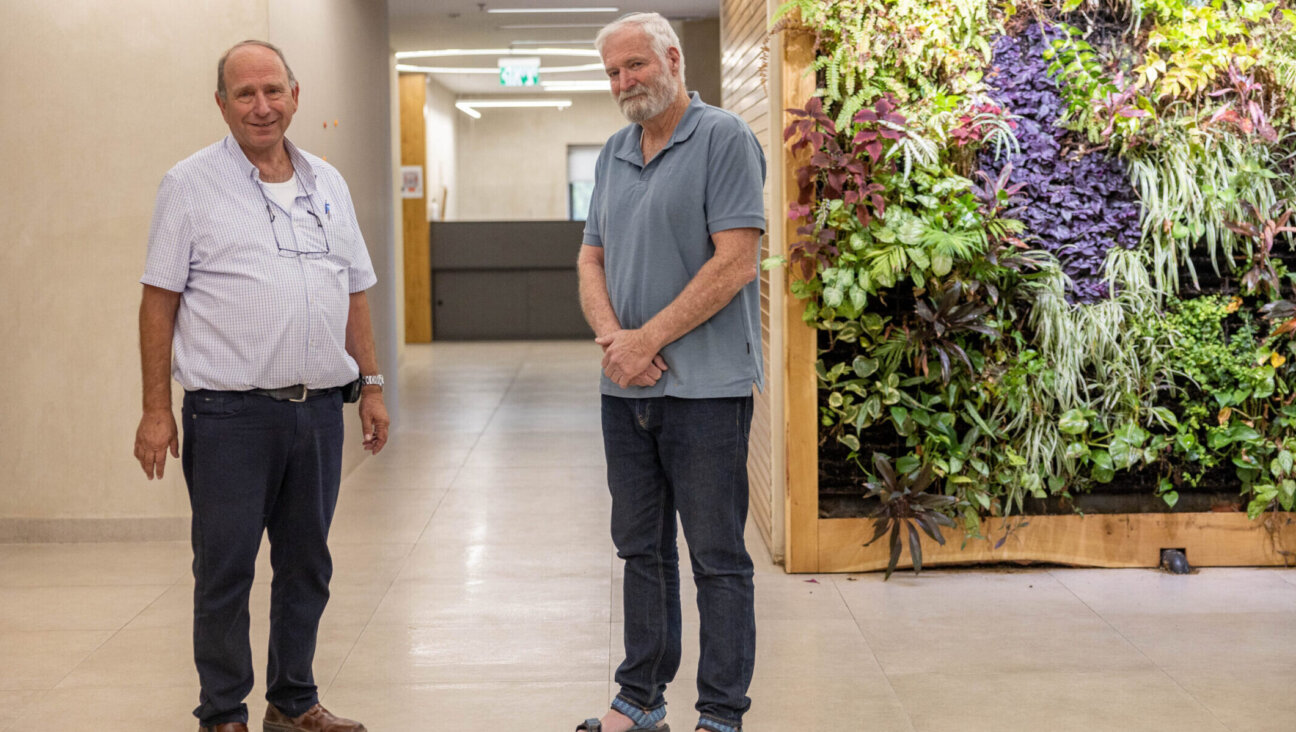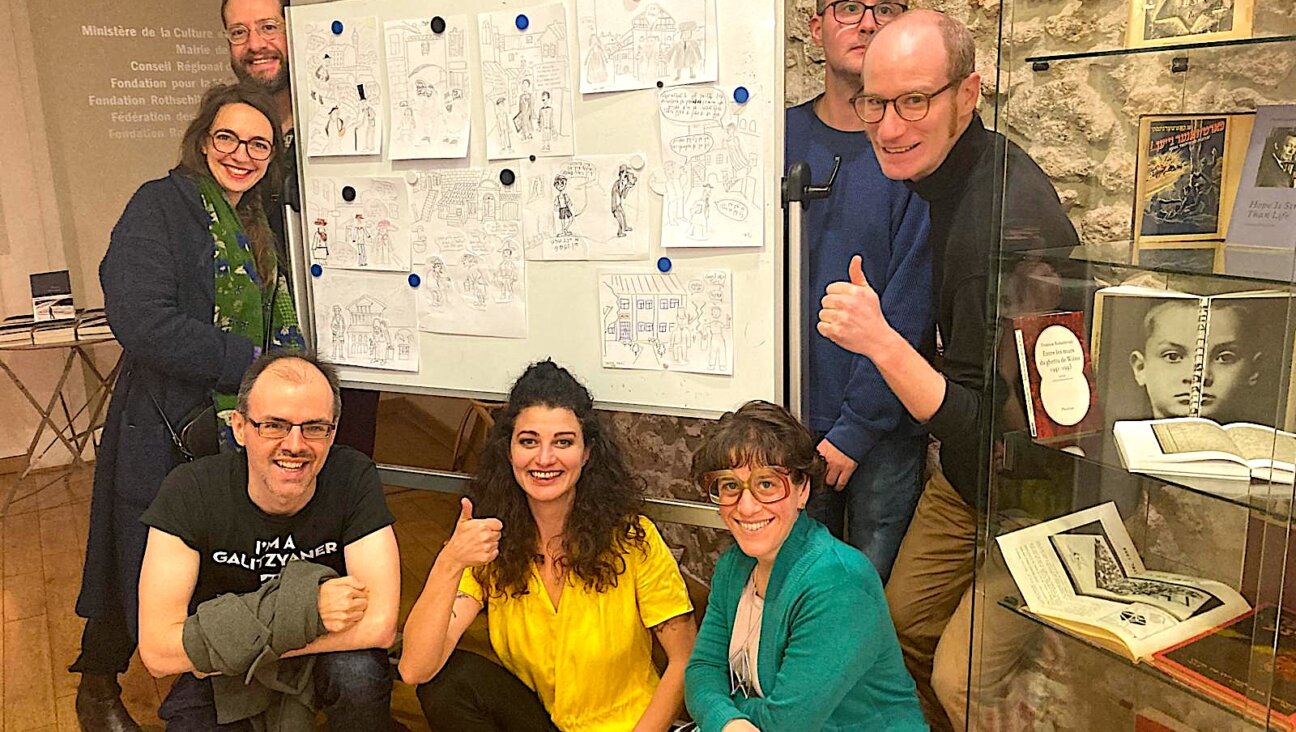Fair Trade Festival of Lights

Global Exchange is selling a Fair Trade menorah
As shopping and morality become further entwined — organic, locally made, recycled — choices in Judaica have not been left behind. In time for Hanukkah, Global Exchange has recently released a Fair Trade menorah, the only one of its kind on the market.

Global Exchange is selling a Fair Trade menorah
Constructed of pine from a Chilean reforestation project and painted by members of an artists’ workshop in El Salvador, the menorahs come decorated with colorful scenes of the Salvadorian countryside. In addition to supporting the standards of Fair Trade — defined as “the mutually beneficial relationship between producer and retailer” — a purchase of a menorah ($24) will also send 20% of the profits to Salvadorian schools; 50% will help send rural youth on a trip to a children’s museum in the capital. Global Exchange retains 5% of the profit for general operating support, but does not prosper from the sale.
“There is a market of Jews who want to express their Jewish beliefs through purchasing,” said Global Exchange’s buyer and project manager, Abby Edelman, who spearheaded this project.
“With this, people have a chance to feel connected to the things they buy.”
Edelman said she has recently been reconnecting with Judaism through her participation with the Jeremiah Fellowship, which combines religious studies and social justice. The menorah, her first solo project with the organization, allowed her to “bridge the two.”
At the Global Exchange Web site, the menorahs are for sale on their own and as part of a Hanukkah basket that includes cards made by Ethiopian Jews, yarmulkes crocheted in Guatemala and a paper “Shalom” banner in the Mexican style, among other items.
All these products come with a description of their provenance, and many include an explanation of how purchasing the item will benefit the community in which it is made.
While many Jews will disagree with Global Exchange’s position on Israel — the group supports divestment and protests Israel’s policies toward the Palestinians — an equitably produced menorah is consistent with most people’s beliefs.
“The things we use to celebrate our religion should reflect our values,” Edelman said.
A message from our CEO & publisher Rachel Fishman Feddersen

I hope you appreciated this article. Before you go, I’d like to ask you to please support the Forward’s award-winning, nonprofit journalism during this critical time.
We’ve set a goal to raise $260,000 by December 31. That’s an ambitious goal, but one that will give us the resources we need to invest in the high quality news, opinion, analysis and cultural coverage that isn’t available anywhere else.
If you feel inspired to make an impact, now is the time to give something back. Join us as a member at your most generous level.
— Rachel Fishman Feddersen, Publisher and CEO























